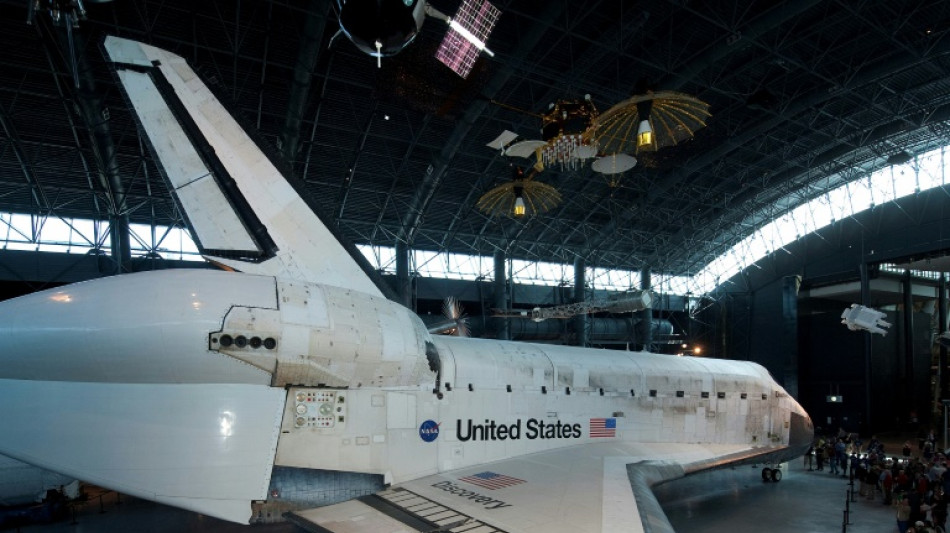
-
 Iranian in possible prisoner exchange faces 'terrorism' verdict in France
Iranian in possible prisoner exchange faces 'terrorism' verdict in France
-
'Street-smart' New Zealand can topple England to make T20 semis: coach

-
 Iran-US talks begin in push to avert war
Iran-US talks begin in push to avert war
-
Merz says Germany, China must overcome trade gaps 'together'

-
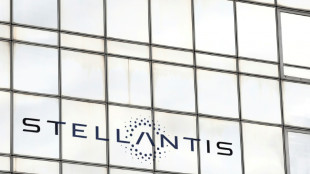 Automaker Stellantis posts massive loss, pivots from EV
Automaker Stellantis posts massive loss, pivots from EV
-
US, Ukraine to meet in Geneva after overnight Russian strikes

-
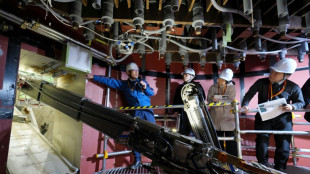 Snake-like robot unveiled for Fukushima debris removal
Snake-like robot unveiled for Fukushima debris removal
-
'Public lynching': Senegal cracks down on LGBTQ+ community

-
 Hong Kong sentences father of wanted activist to 8 months in jail
Hong Kong sentences father of wanted activist to 8 months in jail
-
The woman fighting to reclaim her face from Albania's 'AI minister'

-
 Bulgaria ski station becomes refuge for digital nomads
Bulgaria ski station becomes refuge for digital nomads
-
Thai runner-up party seeks criminal case against election officials

-
 North Korea's Kim shuns South but could 'get along' with US
North Korea's Kim shuns South but could 'get along' with US
-
Spurs win 10th straight, Pistons silence Thunder in battle of NBA's best

-
 Germany's Merz visits China AI hub hoping for business deals
Germany's Merz visits China AI hub hoping for business deals
-
Post-uprising polls won't shake Nepal's delicate India-China balance

-
 S.Korea's Park Chan-wook to head Cannes festival jury
S.Korea's Park Chan-wook to head Cannes festival jury
-
Australian ex-PM says 'more important than ever' to ditch UK monarchy
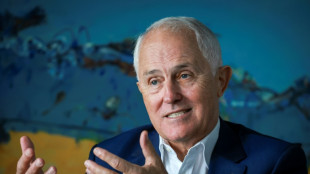
-
 Dressed for succession? Kim Jong Un, daughter fuel speculation with matching coats
Dressed for succession? Kim Jong Un, daughter fuel speculation with matching coats
-
US-Ukraine talks to open in Geneva after overnight Russian strikes

-
 Export ban sparks rush to process lithium in Zimbabwe
Export ban sparks rush to process lithium in Zimbabwe
-
Pakistani sculptor turns scrap into colossal metal artworks
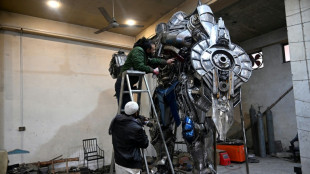
-
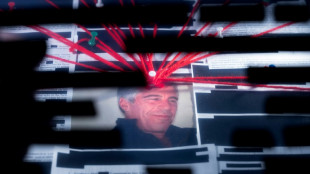 Epstein files reveal links to cash, women, power in Africa
Epstein files reveal links to cash, women, power in Africa
-
Where are Southeast Asia's data centres?
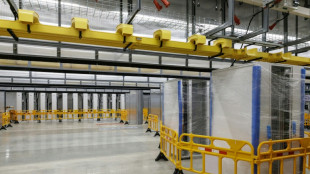
-
 Where AI lives: Southeast Asia's data centre boom
Where AI lives: Southeast Asia's data centre boom
-
Seoul hits fresh record on mixed day for Asia markets

-
 Kyiv residents pool together for solar panels and batteries amid Russian strikes
Kyiv residents pool together for solar panels and batteries amid Russian strikes
-
North Korea's Kim says could 'get along' with US but shuns South

-
 Cuba kills four on US-registered speedboat trying to 'infiltrate'
Cuba kills four on US-registered speedboat trying to 'infiltrate'
-
UK Labour party threatened by hard-right, leftists in heartland

-
 Australian PM sorry after saying sexual assault survivor 'difficult'
Australian PM sorry after saying sexual assault survivor 'difficult'
-
Kim Jong Un spurns olive branch from 'hostile' South Korea

-
 DR Congo sanctuary resists bloody forest sell-off
DR Congo sanctuary resists bloody forest sell-off
-
North Korea looking to replicate youth success at Women's Asian Cup

-
 Deal or no deal: What's the state of Trump's tariffs?
Deal or no deal: What's the state of Trump's tariffs?
-
Hillary Clinton to testify in US House panel's Epstein probe

-
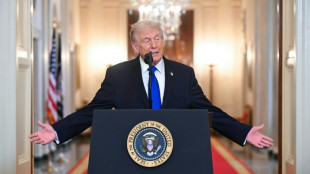 African migrants won legal protections - then Trump deported them
African migrants won legal protections - then Trump deported them
-
US women's ice hockey captain responds to 'distasteful' Trump remark

-
 US presses missile issue as new Iran talks to open in Geneva
US presses missile issue as new Iran talks to open in Geneva
-
US government accused of major 'cover-up' over Trump sex abuse claims

-
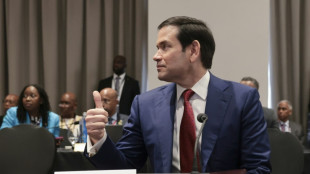 US eases Cuba oil embargo but demands 'dramatic' change
US eases Cuba oil embargo but demands 'dramatic' change
-
IMF urges US to work with partners to ease trade restrictions

-
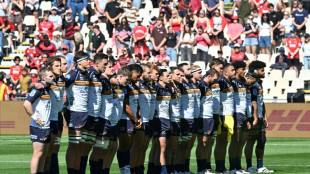 Brumbies not getting carried away by emphatic Super Rugby start
Brumbies not getting carried away by emphatic Super Rugby start
-
Dr. Angela Zeng's TEDx Talk on Supporting Children's Mental Health Without Medication Goes Live

-
 Truly Good Foods Unveils Golden Hour(TM) Snack Bars
Truly Good Foods Unveils Golden Hour(TM) Snack Bars
-
Renee Is Transforming AI Therapy, And It's Just Getting Started

-
 Eagle Plains Increases Saskatchewan Gold Royalty Portfolio
Eagle Plains Increases Saskatchewan Gold Royalty Portfolio
-
Innovation Holds Key to Future Growth, New Research from Ipsos, Alchemy-RX and Market Logic Finds

-
 Forecast Change for The 2025/2026 Fiscal Year
Forecast Change for The 2025/2026 Fiscal Year
-
Banyan Gold Continues to Intersect Visible Gold and High-Grade Mineralization in Powerline, Yukon, Canada


Bid to relocate US Space Shuttle Discovery faces museum pushback
Tucked inside President Donald Trump's flagship tax and spending bill last month was a little-noticed provision to relocate the iconic Space Shuttle Discovery from a museum outside Washington to Houston.
The plan now faces legal uncertainty, with the Smithsonian Institution arguing Congress had no authority to give away what it considers private property -- even before accounting for the steep logistical and financial challenges.
"The Smithsonian Institution owns the Discovery and holds it in trust for the American public," the museum network, which receives substantial federal funding yet remains an independent entity, said in a statement to AFP on Friday.
"In 2012, NASA transferred 'all rights, title, interest and ownership' of the shuttle to the Smithsonian," the statement continued, calling Discovery one of the museum's "centerpieces" that welcomes millions of visitors a year.
The push to move Discovery from the Air and Space Museum's site in northern Virginia began in April, when Texas Senator John Cornyn, a Republican who faces a tough primary challenge next year by state attorney general Ken Paxton, introduced the "Bring the Space Shuttle Home Act," naming Discovery.
The legislation stalled until it was folded into the mammoth "Big Beautiful Bill," signed into law on July 4.
Its passage allocated $85 million for the move, though the nonpartisan Congressional Research Service has projected a far higher cost of $325 million, adding that the NASA administrator's power over non-NASA entities is "unclear."
To comply with Senate rules, the bill's language was modified such that Discovery is no longer named directly. Instead, the bill refers to a "space vehicle," though there is little doubt as to the target.
NASA's administrator -- currently Transportation Secretary Sean Duffy, serving in an acting capacity -- was given 30 days to identify which spacecraft is to be relocated, a deadline coming up on Sunday.
- End of an era -
NASA's Space Shuttle program ended in 2011, after a 30-year run that carried America's post-Apollo space ambitions.
The four surviving orbiters -- Atlantis, Endeavour, prototype Enterprise, and Discovery -- were awarded to Florida, California, New York, and Virginia through a ranked selection process.
Discovery, the most flown, was chosen as a vehicle-of-record in a near-complete state, intended for study by future generations.
"There was not a lot of support within Houston to want a shuttle," space historian Robert Pearlman told AFP, adding that a proposal to house it at Space Center Houston was relatively weak.
But after the announcement, Texas -- home to the Johnson Space Center, which oversees NASA's human spaceflight -- felt snubbed, and allegations of political interference by then-president Barack Obama swirled.
A NASA inspector general probe found no evidence of foul play.
- Enormous challenges -
Relocating Discovery now would pose major technical hurdles. NASA had modified two Boeing 747s to ferry retired shuttles -- one is now a museum piece, and the other is out of service.
That leaves land and water transport. "The nearest water entrance to the Potomac River is about 30 miles away," Pearlman said -- but it may be too shallow for the orbiter and required barge, requiring a 100-mile journey instead.
A water transport would require a massive enclosed barge, he added.
The US government owns only one such vessel, controlled by the military. Loaning it to a civilian agency would require another act of Congress, and the alternative would involve building one from scratch.
Dennis Jenkins, a former shuttle engineer who oversaw the delivery of retired orbiters to their new homes, told the Collect Space outlet he could see costs reach a billion dollars.
Nicholas O'Donnell, an attorney at Sullivan & Worcester with expertise in art and museum law, told AFP that assuming Smithsonian has valid paperwork, "I don't think Secretary Duffy or anyone in the federal government has any more authority to order the move of Discovery than you or I do."
The government could invoke eminent domain -- seizing private property for public use -- but it would have to pay fair market value or try to sue.
The Smithsonian is unlikely to want a court battle, and while it's legally independent, its financial reliance on federal funds leaves it politically vulnerable, said O'Donnell.
G.Stevens--AMWN
